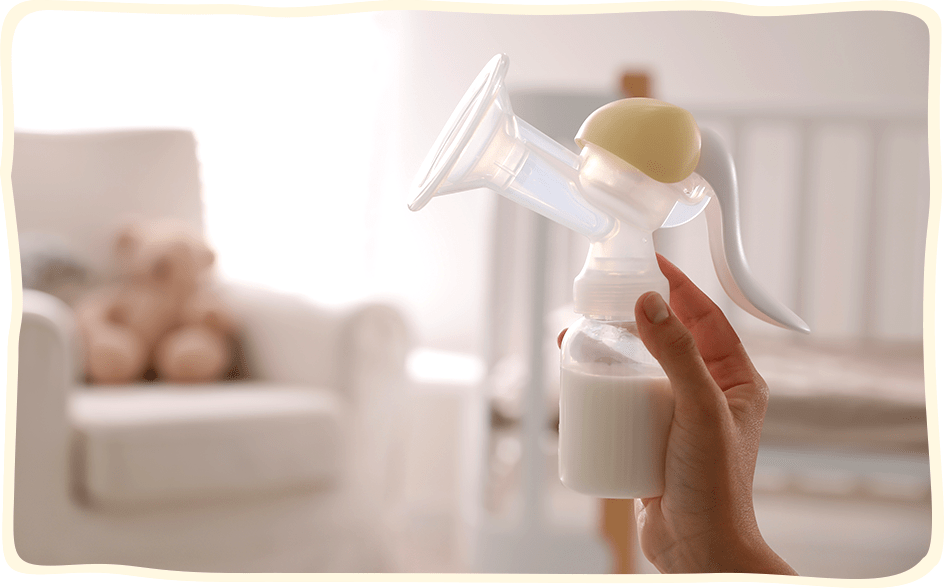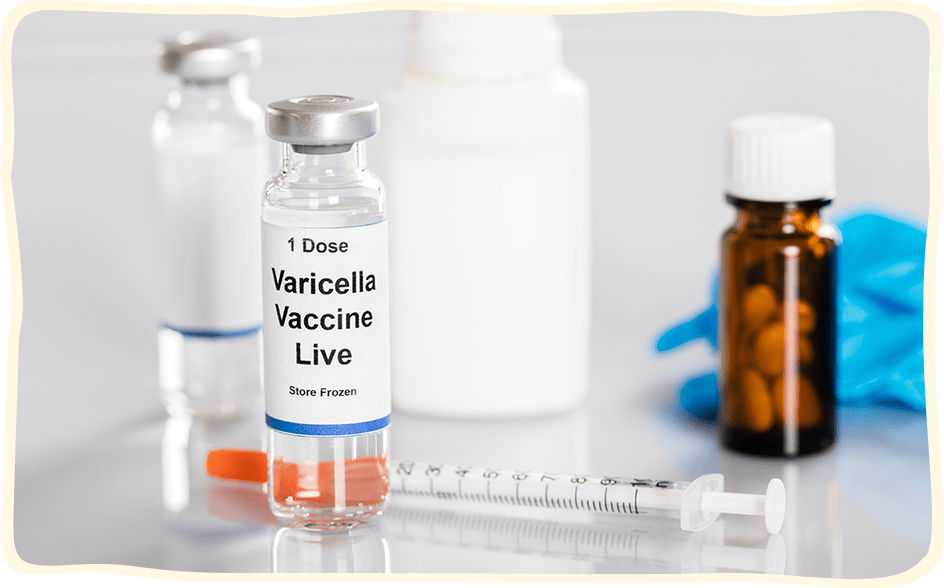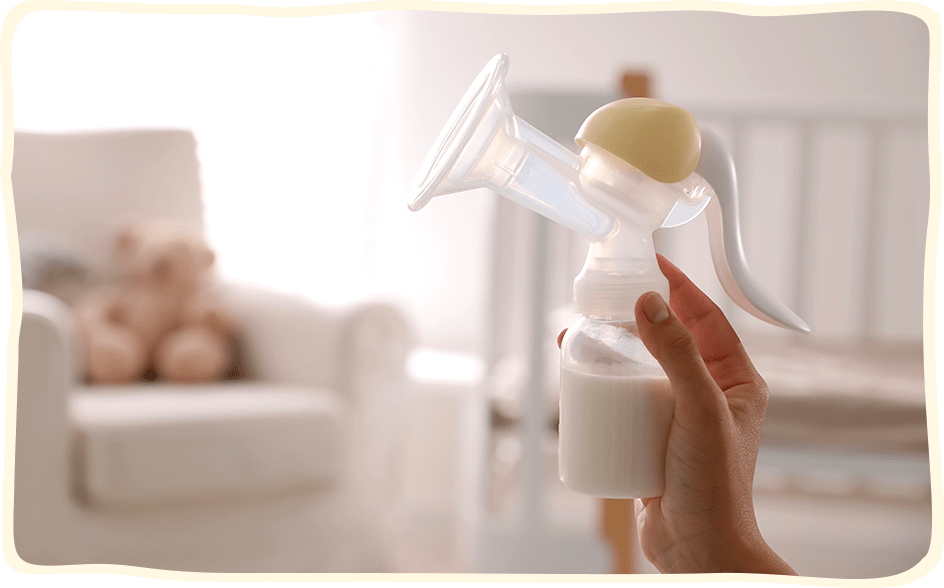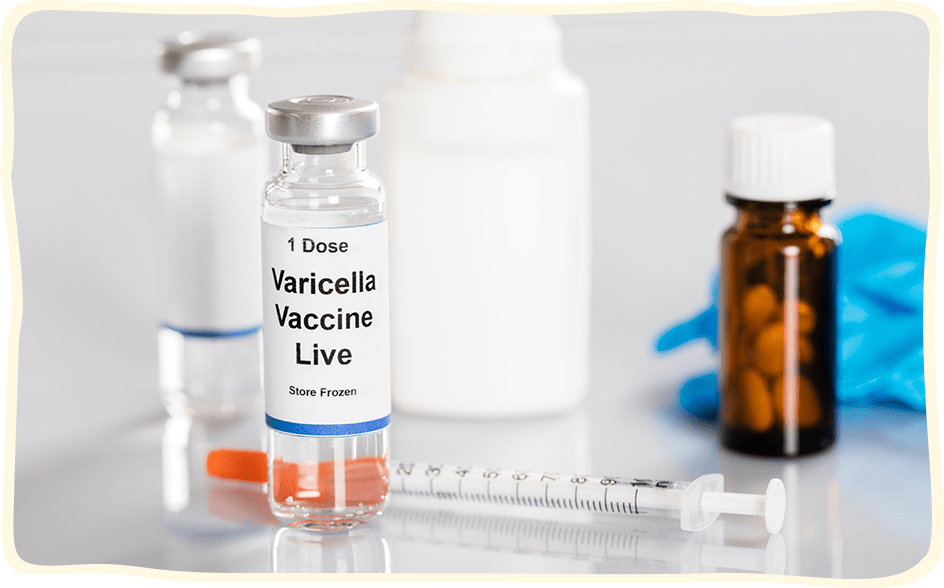Cart (0)
There is nothing in your bag.

Let's add some items.
There is nothing in your bag.

Let's add some items.

It’s natural for parents to worry about their baby’s immunity, particularly in the wake of the pandemic. A strong immune system is vital for a baby's overall health and well-being, reducing the likelihood of frequent illnesses.
Immunity is a complex system involving cells, proteins, and nutrients. Building immunity is a continuous process that requires a holistic approach. Today, we’ll explore effective strategies to build your baby's immunity.
 Immunity Development in Babies
Immunity Development in Babies
Passive immunity:
Babies are born with some antibodies passed on from their mothers during pregnancy. This passive immunity provides initial protection but gradually diminishes over time.Active immunity:
As your baby grows, their own immune system starts to develop. This active immunity enables their bodies to recognize and defend against pathogens independently. Tips for Boosting Your Baby's Immunity
Tips for Boosting Your Baby's Immunity

1) Breast milk: Breast milk is a remarkable source of antibodies, especially in the form of colostrum, which is rich in nutrients, antioxidants, and immune-boosting properties. Breastfeeding provides essential support for your baby's developing immune system.

2) Vaccinations: Ensuring timely vaccinations is crucial for building immunity. Vaccines contain dormant antibodies that safeguard your baby against various infections, such as mumps and chickenpox. Follow your doctor's recommendations for your baby's immunizations.
3) Good hygiene practices: Promote regular handwashing among caregivers and parents who handle the baby. Touch is a common mode of infection transmission, and babies often put objects in their mouths.
Encourage hand washing, disinfect surfaces and toys regularly, and maintain a clean environment, as good hygiene practices can help reduce the incidence and spread of infections.

4) Sleep: Sufficient sleep is essential for your baby's immunity. Inadequate sleep hampers the production of cytokinins, which are crucial in fighting infections and reducing inflammation. Ensure your baby gets the recommended amount of sleep based on their age.

5) Healthy diet: As your baby starts solid foods, focus on offering a diverse range of fruits, vegetables, grains, and other nutrient-rich options. A balanced diet rich in vitamins, proteins, carbs, healthy fats, iron, and other essential nutrients supports their immune system development.
 What Role Does Nutrition Play in Immunity Building?
What Role Does Nutrition Play in Immunity Building?
A variety of vitamins and minerals contribute to immunity. While no single food can boost immunity alone, incorporating a wide range of foods is key. Here are some nutrients that play a vital role:
1) Vitamin D: Vitamin D is essential for immunity, but it often requires supplementation as natural food sources are limited. Consult your pediatrician or healthcare provider for guidance on Vitamin D supplementation for your baby.
2) The gut-immunity connection: The gut plays a significant role in building immunity. Prebiotics and probiotics maintain gut health and enhance immunity.
Ensure your baby's diet includes sources of prebiotics (fiber-rich foods) and probiotics (fermented foods).
 Here are some immunity-boosting foods you can include in your baby’s diet!
Here are some immunity-boosting foods you can include in your baby’s diet!

 Other Factors That Affect a Child’s Immunity
Other Factors That Affect a Child’s Immunity

1) Outdoor exploration: Allowing your baby to explore the outdoors, under supervision, exposes them to beneficial microorganisms that contribute to immune system development.
Contact with pets and nature has been linked to a reduced incidence of asthma and eczema.
2) Physical contact and emotional well-being: Skin-to-skin contact, cuddling, and affectionate interactions positively impact your baby's overall health and immunity! These practices reduce stress hormones and boost immune function, so prioritize creating a loving and nurturing environment for your little one.

3) Hygiene practices: If your child falls ill, replace their toothbrush to prevent the spread of viruses or infections. Alternatively, to prevent wastefulness, you can sterilize and re-use it.
4) Avoid exposure to passive smoke: Avoid exposing your baby to secondhand smoke as it increases the risk of respiratory issues, infections, and impacts neurological development.
Don’t forget, even with a strong immune system, babies may still fall ill! Illnesses are part of their normal development and contribute to the development of their immune system. Strong immunity enables faster recovery and reduced hospitalization incidents.
In addition to the above practical tips, remember that your baby will thrive and grow healthily with plenty of love and care from you!
It’s natural for parents to worry about their baby’s immunity, particularly in the wake of the pandemic. A strong immune system is vital for a baby's overall health and well-being, reducing the likelihood of frequent illnesses.
Immunity is a complex system involving cells, proteins, and nutrients. Building immunity is a continuous process that requires a holistic approach. Today, we’ll explore effective strategies to build your baby's immunity.

Passive immunity:
Babies are born with some antibodies passed on from their mothers during pregnancy. This passive immunity provides initial protection but gradually diminishes over time.Active immunity:
As your baby grows, their own immune system starts to develop. This active immunity enables their bodies to recognize and defend against pathogens independently.

1) Breast milk: Breast milk is a remarkable source of antibodies, especially in the form of colostrum, which is rich in nutrients, antioxidants, and immune-boosting properties. Breastfeeding provides essential support for your baby's developing immune system.

2) Vaccinations: Ensuring timely vaccinations is crucial for building immunity. Vaccines contain dormant antibodies that safeguard your baby against various infections, such as mumps and chickenpox. Follow your doctor's recommendations for your baby's immunizations.
3) Good hygiene practices: Promote regular handwashing among caregivers and parents who handle the baby. Touch is a common mode of infection transmission, and babies often put objects in their mouths.
Encourage hand washing, disinfect surfaces and toys regularly, and maintain a clean environment, as good hygiene practices can help reduce the incidence and spread of infections.

4) Sleep: Sufficient sleep is essential for your baby's immunity. Inadequate sleep hampers the production of cytokinins, which are crucial in fighting infections and reducing inflammation. Ensure your baby gets the recommended amount of sleep based on their age.

5) Healthy diet: As your baby starts solid foods, focus on offering a diverse range of fruits, vegetables, grains, and other nutrient-rich options. A balanced diet rich in vitamins, proteins, carbs, healthy fats, iron, and other essential nutrients supports their immune system development.

A variety of vitamins and minerals contribute to immunity. While no single food can boost immunity alone, incorporating a wide range of foods is key. Here are some nutrients that play a vital role:
1) Vitamin D: Vitamin D is essential for immunity, but it often requires supplementation as natural food sources are limited. Consult your pediatrician or healthcare provider for guidance on Vitamin D supplementation for your baby.
2) The gut-immunity connection: The gut plays a significant role in building immunity. Prebiotics and probiotics maintain gut health and enhance immunity.
Ensure your baby's diet includes sources of prebiotics (fiber-rich foods) and probiotics (fermented foods).





1) Outdoor exploration: Allowing your baby to explore the outdoors, under supervision, exposes them to beneficial microorganisms that contribute to immune system development.
Contact with pets and nature has been linked to a reduced incidence of asthma and eczema.
2) Physical contact and emotional well-being: Skin-to-skin contact, cuddling, and affectionate interactions positively impact your baby's overall health and immunity! These practices reduce stress hormones and boost immune function, so prioritize creating a loving and nurturing environment for your little one.

3) Hygiene practices: If your child falls ill, replace their toothbrush to prevent the spread of viruses or infections. Alternatively, to prevent wastefulness, you can sterilize and re-use it.
4) Avoid exposure to passive smoke: Avoid exposing your baby to secondhand smoke as it increases the risk of respiratory issues, infections, and impacts neurological development.
Don’t forget, even with a strong immune system, babies may still fall ill! Illnesses are part of their normal development and contribute to the development of their immune system. Strong immunity enables faster recovery and reduced hospitalization incidents.
In addition to the above practical tips, remember that your baby will thrive and grow healthily with plenty of love and care from you!









Check your WhatsApp for Slurrp It Up’s first message to you. ☺






